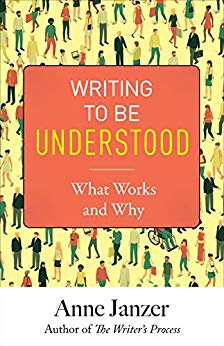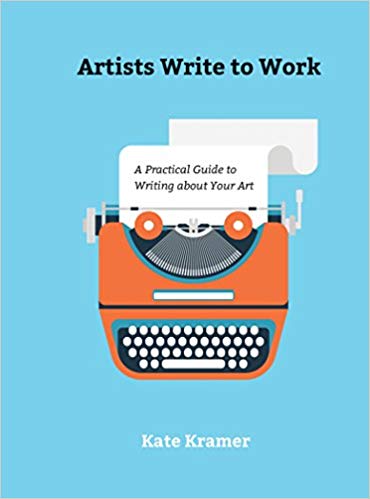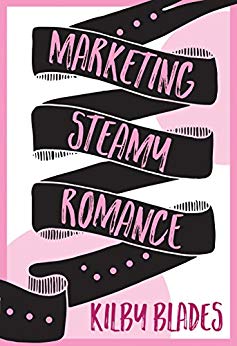Feature
Welcome to 2020
Publishing is Still Nuts
by Nina L. Diamond / January 2020

"The more things change, the more they stay the same."
- French writer Jean-Baptiste Alphonse Karr, 1848 [English translation]
"Life is full of little injustices. Either they bother you, or they don't. Me, they bother."
- Anne Bancroft, Garbo Talks [1984 movie]
Ten days before Christmas, I saw a tweet scroll by. A literary agency would not be accepting queries from that date until January 6th. All queries received during that time via e-mail would be deleted.
What would that agency have done before digital submissions? Destroy all the mail received that included queries, proposals, and manuscripts? Toss them on the Yule log and have a festive book proposal burning?
Not saving the queries that arrive between December 14 - January 5 solves nothing. It's stupid. When writers abide by this and wait to send queries on January 6th, the agency opens its email on that day to find a ton of queries in the in-box. They've just arrived all on one day, rather than spread out over three weeks. But that mailbox is still a pile of queries.
All this policy does is reinforce the contempt some agents still frequently show writers (including those authors they already represent). And to do this during the holidays is a special kind of contempt. This agency was among other agencies and individual agents playing Grinch for Christmas by announcing a query deletion policy during the holidays.
As we all look back at the 2010s to prepare for the 2020s, I looked at Confessions Of An IPPY Judge, an Independent Publisher magazine article I'd written that also did a good job of looking back at the first decade of the 2000s.
The article was initially published under the byline I.P. Judge. After I read my article at the 2009 IPPY Awards, we removed the I.P. Judge byline and replaced it with my name.
Now, I wanted to see what had changed -- specifically, if anything had improved -- since then. I found that nothing had changed, except for the things that were not only still crap, but had gotten even worse over this last decade.
Here's that article, Confessions Of An IPPY Judge, which I have now briefly annotated (you'll see my new comments in bold, between sections of the article) to reflect the things that have remained the same, the things that have changed, and the things that are even worse.
* * * * *
I am an IPPY judge.
Some of you probably want to take me out to dinner, or at the very least buy me a fabulous new car. The rest of you probably want to throw tomatoes at me, or at the car I currently drive.
In order to avoid any of these reactions, I’m going to remain anonymous.
Here’s what I will tell you: I have more than 25 years of experience in all of the areas you’d expect from a judge:
I have written a number of my own books which have been published by major and independent publishers, and have ghostwritten for other authors. I’ve written on nearly every subject you can think of, and specialize in a few, including the media and the publishing industry.
I edit fiction and non-fiction books, articles, essays, and even newsletters. I’ve written promotional material. I review books. I’ve worked in TV and radio. I’ve promoted my own books. I’ve mentored plenty of other authors, advising them on writing, getting published, and promoting their books. I am a voracious reader.
I could go on, but you get the point.
Most importantly, I love great books and the people who write them. I wish I could say the same thing about everything and everyone else in the publishing industry, but I’m not gonna lie to you.
*NEW COMMENT: This is all still true.
We all know what’s wrong in the publishing industry and how drastically it’s changed since “the good ol’ days.”
Somehow, great books with great writing still manage to get published, though not as often as they should be. Unfortunately, most of what’s published these days is merely product.
For all of these reasons, I love great books and the people who write them now more than ever. They’re an endangered species.
*NEW COMMENT: This is all still true.
All of this plays a significant role in why I also love being an IPPY judge.
I get to say “No thanks" to books that not only don’t deserve recognition, but probably never should’ve been published, at least not in the editorial condition they were in when they hit the shelves.
And I get say “I’m speechless” when I read an IPPY contender that’s so incredible it takes my breath away, leaving me babbling to myself and to Independent Publisher editor and IPPY Awards director Jim Barnes. Once I regain my ability to speak actual words, I let him know how much I love a book by making my usual threat: If this book doesn’t win, I’m going to throw you out the window.
I judge a number of categories. I have very high standards. I’m supposed to. After all, I’m an IPPY judge, not a publishing house editor. (I see that tomato coming my way, and I’m going to duck now.)
Which brings me to my next confession: I’ve been pleasantly surprised by the number of excellent self-published books that have arrived at my door during judging season. Some have won or placed in their categories. I shouldn’t have been surprised, though. Talent has to go somewhere, and since so little of it is appreciated by publishers these days, superb writers often end up self-publishing their work via any number of today’s many traditional and online options.
I do not discriminate. I don’t care if you’re self-published or published by a publishing house. I don’t care if you’re published by a well-known house or one I’ve never heard of-- I only care if you’ve written a book that knocks my socks off.
I don’t care if you’re an award-winning, grant-winning, well-connected, always-reviewed, super author with academic degrees out the wazoo -- if your book stinks, your book stinks.
I don’t care if you never went to college, don’t know any literary high mucky-mucks, and dig ditches to support yourself-- if your book shines, your book shines.
*NEW COMMENT: All of this is still true, except that I finished my stint as an IPPY judge (2004-2012) eight years ago.
I don’t care if your book is the most well-researched piece of work the world has ever seen-- if you can’t write, you can’t write. And if you can’t write, you shouldn’t be published, and you certainly won’t win an IPPY award, or even place. Sorry, folks, writing talent isn’t just part of the deal, it’s the core of it.
Hey, people, wake up! These are books, and books are supposed to be well-written pieces of work. What does that mean? That means creativity, imagination, a strong voice, a way with words.
Books are not information dumped onto pages. At least they’re not supposed to be. Get that? Let me say it again for those of you who may need to hear this again: Books are not information dumped onto pages.
And while I’m on the subject of what books are not, let me add this: books are not merely description. So many books, fiction and non-fiction (although fiction suffers from this disease far more often), are just endless descriptive passages. No real insight. Certainly no emotional impact. No point. Just description, description, description. Going on and on about what the sky looks like is not storytelling, it’s just description. Do you hear that, novelists? Do you hear that, poets?
And another thing books are not: books are not a place for an author to open a vein and bleed onto the page. That would be the journal you keep so you can read it to your therapist. Books are a place for an author to creatively tell us about and show us his or her thoughts, opinions, experiences, feelings, you name it. The joy, the pain, and everything in between. Bleeding on the page is just another form of dumping information on the page. Perhaps there’s a fine line here, but readers know it when they see it. And so do IPPY judges.
I fell in love with a lot of books this year while judging the IPPYs. Even more than last year. Plenty of times, while reading, I wanted to stop and call the author on the phone and gush. But, we judges can’t do that. So, we call Jim and gush. Even if it’s the middle of the night and we know he’s not in his office. We don’t care. We have to gush, so we gush to his voice mail, his e-mail.
Or at least I do. I can’t speak for the other judges. I don’t even know who most of them are. These are just the humble and not so humble opinions and confessions of one judge. But, I suspect that the others share most, if not all, of these. If they didn’t, they wouldn’t be judges.
We judges are independent. No one tells us how to judge or what to think. We don’t have to contend with office or organizational politics regarding our choices. We aren’t worried about pleasing anyone or offending anyone.
When I love a book, I want to tell everyone about it, and I do. I tell colleagues, friends, family, even complete strangers. And not just about the winners. The finalists and many of the wonderful books that didn’t become finalists also move me so much that I can’t shut up about them.
Plenty of great books don’t win or place in their categories. Sometimes, it’s hard to choose the winners and finalists because so many books in a particular category are deserving of such recognition. Sometimes, it’s quite easy to choose because that year a particular category has just a few standouts.
But, no matter what, a winner makes itself known by one particular quality that separates it from all the rest: MAGIC. It has that special something you can’t quite define, can’t quite articulate, and then you realize that the word magic is really the only word that will do. The finalists have a bit of magic about them, too. Some more than others. But the winners don’t just have a bit of it, they glow.
I don’t think the judges choose the winners. I think the winners make themselves known. They stand up and shout, “I’m the winner!”
You can’t ignore them. They won’t let you. They call to you from that pile on the floor. From the coffee table. From the desk. From your lap as you curl up on the couch, in your comfy chair, or in your bed. A winner grabs you by the gut and won’t let you go. And you don’t want it to let you go. You want to celebrate it. You want to tell the world about it. And that’s exactly what we’ve done.
I know what it takes to write a book, to get it published, to promote it. I’ve been there. I know the joys. I know the frustrations. I also know what it’s like to be a reader. What it takes for a book to win me over. The joy when a book does that. The frustration when it doesn’t.
*NEW COMMENT: All of this is still true. Even in my post-judging years, I still want to tell the world about every great book I read.
TO THE AUTHORS WHOSE BOOKS WERE ENTERED IN THE IPPY AWARDS, I CONFESS THE FOLLOWING: Some of you have brought me great joy. Some of you have brought me great frustration. All of you have one thing in common: you have moved me in one way or another, whether that’s been to shout from the rooftops with glee or to rant about how low publishing has sunk, and renew my vow to do my part to change that.
*NEW COMMENT: This is still true. And, here I am again, ranting about how low publishing has sunk. This time, how some literary agencies delete queries and proposals that arrive via email during the holidays.
TO THE PUBLISHERS WHO ENTERED THEIR BOOKS IN THE IPPY AWARDS, I CONFESS THE FOLLOWING: Thank you for the courage it took to publish books of superb quality. You have helped raise the bar. But, I have a beef, and it’s a pretty big one, so listen up: Tell the world about the books you publish. It isn’t enough to have your authors promote your books, you must promote them, too, or you’re really just a printer. Publishing doesn’t exist in a vacuum. You can’t complain about slow book sales while you’re not willing to do anything about selling and promoting.
Plenty of IPPY contenders and winners have been books I never knew existed, and wouldn’t have known about if I hadn’t been a judge. That is insane. I’m not your average reader. I’m in the publishing industry. I should’ve heard about these wonderful books, and the general public should’ve heard about them, too. I realize that about 180,000 books are published every year and I can’t possibly hear about all of them, but I know and you know that you can do so much better when it comes to getting the word out.
Never say, “Okay, we’ll promote the book once we see that we have a lot of sales.”That makes absolutely no business sense. How do you expect to have those sales in the first place if no one knows that the book’s out there? You must spend the money to market and promote the book in order to make the sales. Every industry understands that basic business fact except the publishing industry. Stop the self-sabotage. Promote your product or get out of the publishing business and sell widgets instead.
And one more thing while I have your attention before you reach for another basket of tomatoes to hurl at me? Stop blaming authors when books don’t sell. Books don’t sell because publishing companies don’t make much of an effort except for a couple of lead titles. We all know that. When your marketing department, promotion and PR folks, or your editors screw up, hold them accountable instead of taking it out on authors.
I guarantee you that plenty of this year’s IPPY winners have hardly sold any copies, and that’s clearly not because the books aren’t any good. It’s because publishers have decided that it’s not their job to market their own product. News flash: it is your job, publishers, and if you don’t do it your sales will continue to spiral downward. And self-publishing will continue to rise. After all, if authors have to do all of their own marketing, and are subject to the distribution whims of their disinterested publishers, authors would be better off taking over the entire publishing process and benefiting from the control that comes with it.
*NEW COMMENT: This is still true. Even with social media now, publishers still do very little to promote their books, unless the books are lead titles and/or the authors are household names.
TO THE WINNERS AND FINALISTS, I CONFESS THE FOLLOWING: I’m speechless. That is my highest compliment. Your talent and perseverance deserve more than just IPPY recognition. If I could throw you a ticker tape parade, I would. Would you settle for being showered with the wadded up paper in the little trash basket under my desk?
If I could book you on Oprah, I would. If I could have you all over for dinner and great conversation, I would. If I could personally travel the country and sell your book on street corners out of the trunk of my car, I would. If I could get your book on The New York Times bestseller list, I would. If I could bring you a million dollar advance for your next book, I would.
If I could spare you all the crap you’ll probably have to go through to get your next book published, I would.
And what can you do for me? Write another amazing book. The world needs more authors exactly like you.
*NEW COMMENT: This is still true.
Unfortunately, authors still have to go through crap to get their books published. Welcome to 2020: Publishing is still nuts.
* * * * *
Nina L. Diamond is a journalist, essayist, humorist, and the author of books including Voices of Truth: Conversations with Scientists, Thinkers & Healers. Her work has appeared in numerous publications, including Poynter, Omni, The Los Angeles Times Magazine, The Chicago Tribune, The Sun-Sentinel, and The Miami Herald.
She has been a contributing writer for Independent Publisher magazine since 2003, and wrote her Much Ado About Publishing column from 2003-2012.
Ms. Diamond was a writer and performer on Pandemonium, the National Public Radio (NPR) satirical humor program, for it's entire run on WLRN in Miami and in select markets nationwide from 1984-1998. As an editor, she works with other authors and journalists on both fiction and non-fiction. You can find her on Twitter: @ninatypewriter.



 "The more things change, the more they stay the same."
"The more things change, the more they stay the same."
